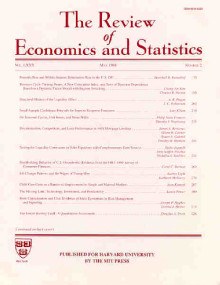
Koopman, S., Lucas, A. and Scharth, M. (2016). Predicting time-varying parameters with parameter-driven and observation-driven models Review of Economics and Statistics, 98(1):97--110.
-
Affiliated authors
-
Publication year2016
-
JournalReview of Economics and Statistics
We verify whether Parameter-Driven and Observation-Driven classes of dynamic models can outperform each other in predicting timevarying parameters. We consider existing and new dynamic models for counts and durations, but also for volatility, intensity, and dependence parameters. In an extended Monte Carlo study, we pre@sent evidence that Observation-Driven models based on the score of the predictive likelihood function have similar predictive accuracy compared to their correctly specified Parameter-Driven counterparts. Dynamic Observation-Driven models based on predictive score updating outperform models based on conditional moments updating. Our main findings are supported by the results from an extensive empirical study in volatility forecasting.